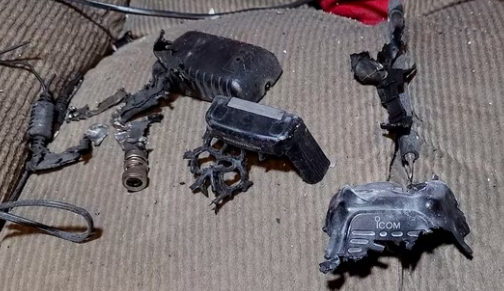In a move to reassert its strength and repair its image after the October 7 security lapse, Israeli military forces launched a series of retaliatory airstrikes against Hezbollah targets in southern Lebanon. The attacks come in the wake of a shocking intelligence failure that allowed a major assault on Israel’s southern border, leaving the country vulnerable to cross-border threats.
The October 7 incident, which saw Hamas militants carry out coordinated rocket attacks and raids, left the Israeli Defense Forces (IDF) scrambling to secure its borders and reevaluate its intelligence operations. The sudden breach raised questions about the efficiency of Israel’s intelligence agencies, including Mossad and Shin Bet, and whether internal or external factors led to the oversight.
In response to the growing threat from Hezbollah, an Iranian-backed militant group with a significant presence in Lebanon, Israel’s airstrikes targeted strategic military installations, weapons storage, and infrastructure crucial to the group’s operations. The IDF claims these strikes are part of a broader effort to neutralize threats from Lebanon, signalling that they will not tolerate any further encroachments on their borders.
This series of strikes represents a forceful response, designed to restore public confidence in Israel’s military capabilities after the intelligence blunder. Analysts suggest that this could be part of a larger shift within the country’s defence strategy, focusing on rapid retaliation and preemptive strikes against threats from both Hezbollah and other Iran-backed militias in the region.
Tensions between Israel and Hezbollah have been on the rise, with the Lebanese militant group occasionally launching small-scale attacks on Israel’s northern border. Following the October 7 failure, Israeli officials are concerned about the potential for a coordinated attack from both Hezbollah in the north and Hamas in the south.
Israeli Prime Minister Benjamin Netanyahu, while addressing the nation, emphasized that the country will not hesitate to use force to defend its citizens. The strikes in Lebanon, he added, were a necessary step in protecting Israel’s sovereignty and deterring future threats. “We will respond to any attack against us with full force. Our enemies will pay a heavy price,” Netanyahu said.
Meanwhile, the international community is closely watching the developments in the region, with many nations calling for restraint to avoid further escalation. However, Israel’s leadership appears determined to signal that they will take decisive action against any perceived threats, especially following the embarrassment caused by the October 7 assault.
As the situation continues to evolve, it is evident that Israel is taking the lessons learned from its intelligence failure seriously. Military officials have hinted at significant changes within its security apparatus, including increased surveillance and intelligence-sharing with international allies. The airstrikes against Hezbollah are viewed as just the beginning of a broader push to restore Israel’s image as a dominant regional power.








 India
India












